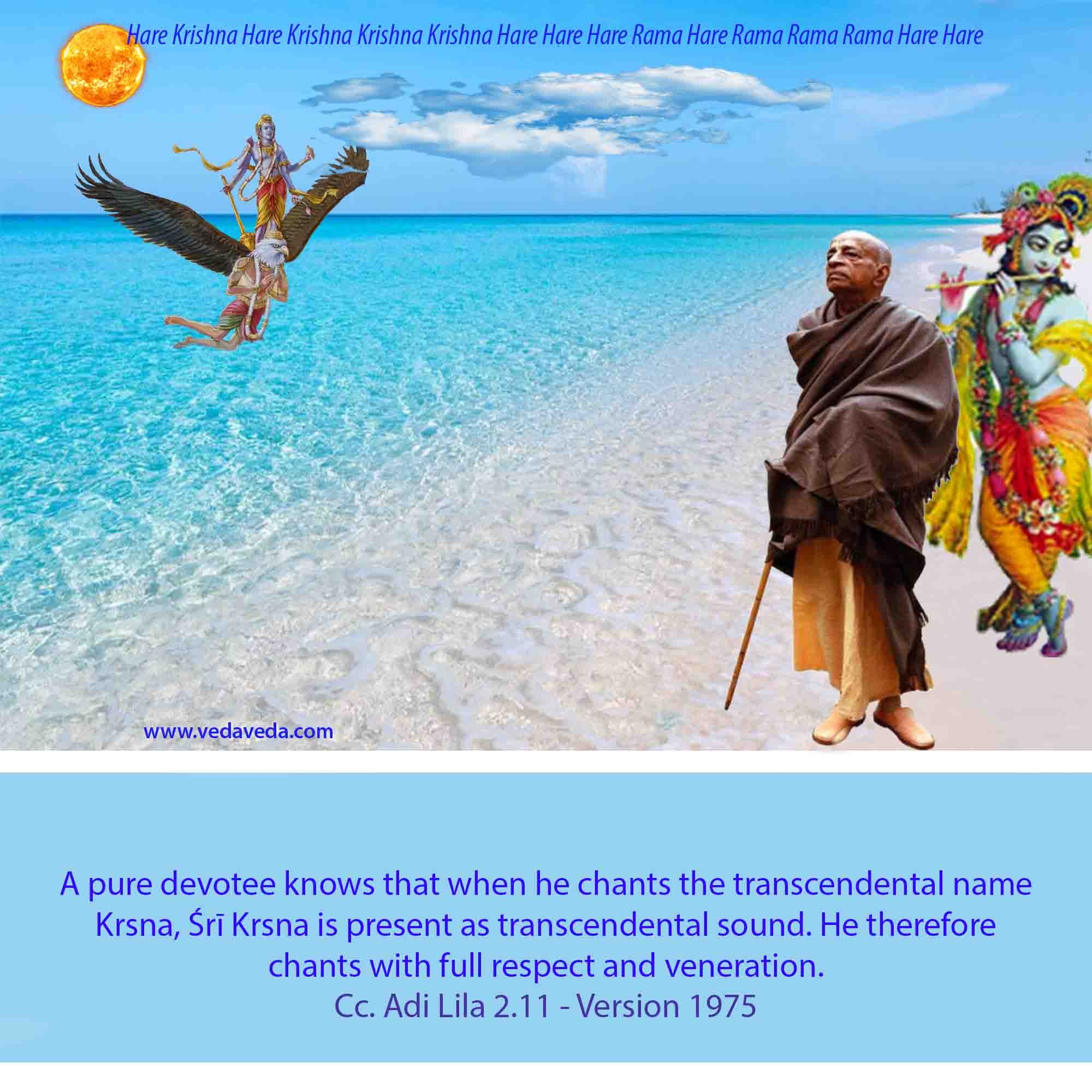
TRANSLATION
"Learned transcendentalists who know the Absolute Truth say that it is nondual knowledge and is called impersonal Brahman, localized Paramātmā and the Personality of Godhead."
PURPORT
This Sanskrit verse appears as the eleventh verse of the First Canto, Second Chapter, of Śrīmad-Bhāgavatam, where Sūta Gosvāmī answers the questions of the sages headed by Śaunaka Ṛṣi concerning the essence of all scriptural instructions. Tattva-vidaḥ refers to persons who have knowledge of the Absolute Truth. They can certainly understand knowledge without duality because they are on the spiritual platform. The Absolute Truth is known sometimes as Brahman, sometimes as Paramātmā and sometimes as Bhagavān. Persons who are in knowledge of the truth know that one who tries to approach the Absolute simply by mental speculation will ultimately realize the impersonal Brahman, and one who tries to approach the Absolute through yoga practice will be able to realize Paramātmā, but one who has complete knowledge and spiritual understanding realizes the spiritual form of Bhagavān, the Personality of Godhead.
Devotees of the Personality of Godhead know that Śrī Kṛṣṇa, the son of the King of Vraja, is the Absolute Truth. They do not discriminate between Śrī Kṛṣṇa's name, form, quality and pastimes. One who wants to separate the Lord's absolute name, form and qualities must be understood to be lacking in absolute knowledge. A pure devotee knows that when he chants the transcendental name Kṛṣṇa, Śrī Kṛṣṇa is present as transcendental sound. He therefore chants with full respect and veneration. When he sees the forms of Śrī Kṛṣṇa, he does not see anything different from the Lord. If one sees otherwise, he must be considered untrained in absolute knowledge. This lack of absolute knowledge is called māyā. One who is not Kṛṣṇa conscious is ruled by the spell of māyā under the control of a duality in knowledge. In the Absolute, all manifestations of the Supreme Lord are nondual, just as the multifarious forms of Viṣṇu, the controller of māyā, are nondual. Empiric philosophers who pursue the impersonal Brahman accept only the knowledge that the personality of the living entity is not different from the personality of the Supreme Lord, and mystic yogīs who try to locate the Paramātmā accept only the knowledge that the pure soul is not different from the Supersoul. The absolute conception of a pure devotee, however, includes all others. A devotee does not see anything except in its relationship with Kṛṣṇa, and therefore his realization is the most perfect of all.

